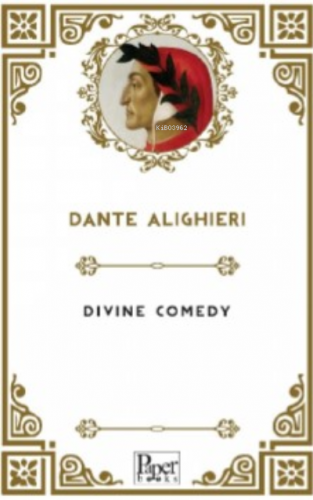9786258141634
600663

https://www.sehadetkitap.com/urun/divine-comedy
Divine Comedy
390.00
The Divine Comedy is an Italian narrative poem by Dante Alighieri, begun c. 1308
and completed around 1321, shortly before the author's death. It is widely
considered the pre-eminent work in Italian literature and one of the greatest works
of world literature. The poem's imaginative vision of the afterlife is representative
of the medieval worldview as it existed in the Western Church by the 14th century.
It is divided into three parts: Inferno, Purgatorio, and Paradiso.
The poem discusses “the state of the soul after death and presents an image of
divine justice meted out as due punishment or reward”, and describes Dante's
travels through Hell, Purgatory, and Heaven. Allegorically, the poem represents the
soul's journey towards God, beginning with the recognition and rejection of sin
(Inferno), followed by the penitent Christian life (Purgatorio), which is then followed
by the soul's ascent to God (Paradiso). Dante draws on medieval Catholic theology
and philosophy, especially Thomistic philosophy derived from the Summa
Theologica of Thomas Aquinas.Consequently, the Divine Comedy has been called
“the Summa in verse”.
The Divine Comedy is an Italian narrative poem by Dante Alighieri, begun c. 1308
and completed around 1321, shortly before the author's death. It is widely
considered the pre-eminent work in Italian literature and one of the greatest works
of world literature. The poem's imaginative vision of the afterlife is representative
of the medieval worldview as it existed in the Western Church by the 14th century.
It is divided into three parts: Inferno, Purgatorio, and Paradiso.
The poem discusses “the state of the soul after death and presents an image of
divine justice meted out as due punishment or reward”, and describes Dante's
travels through Hell, Purgatory, and Heaven. Allegorically, the poem represents the
soul's journey towards God, beginning with the recognition and rejection of sin
(Inferno), followed by the penitent Christian life (Purgatorio), which is then followed
by the soul's ascent to God (Paradiso). Dante draws on medieval Catholic theology
and philosophy, especially Thomistic philosophy derived from the Summa
Theologica of Thomas Aquinas.Consequently, the Divine Comedy has been called
“the Summa in verse”.
Yorum yaz
Bu kitabı henüz kimse eleştirmemiş.




















